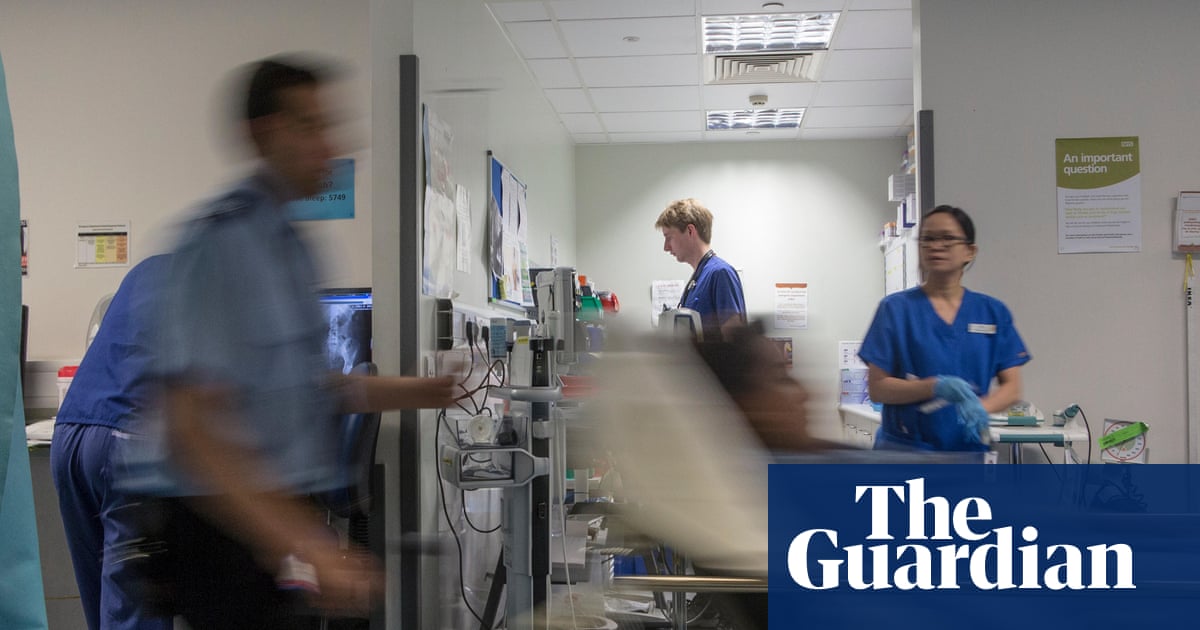The NHS will shift a huge amount of care from hospitals into new community health centres to bring treatment closer to people’s homes and cut waiting times,Keir Starmerwill pledge on Thursday.
The prime minister will outline radical plans to give patients inEnglandmuch easier access to GPs, scans and mental health support in facilities that are open 12 hours a day, six days a week.
The health service must “reform or die”, he will say, when he unveils his 10-year health plan.
Experts, however, said the planned revolution in the way theNHSoperates risked being undermined by staff shortages, tight public finances, a lack of premises in which to host one-stop shop-style “neighbourhood health services” and a public backlash at hospitals being downgraded.
“Our 10-year health plan will fundamentally rewire and future-proof our NHS so that it puts care on people’s doorsteps, harnesses game-changing tech and prevents illness in the first place,” Starmer is expected to say at a launch event in London with the health secretary, Wes Streeting.
“That means giving everyone access to GPs, nurses and wider support all under one roof in their neighbourhood – rebalancing our health system so that it fits around patients’ lives, not the other way round.”
Writing in the Guardian, Streeting says the NHS – which has been given a £52bn funding boost under Labour – must change dramatically to ensure its own future, or risk becoming unsustainable.
Warning that its model of healthcare for every citizen free at the point of use is under attack, he says: “This government rejects the pessimistic view that universal healthcare could be afforded in the 20th century but not in the 21st. So does the public.
“But unless the NHS changes, the argument that it is unsustainable will grow more compelling. It really is change or bust. We choose change.”
Making care more convenient for patients through the new clinics is key to the government’s plan to reinvent the NHS as a service in which more is done in community settings and less in hospitals, which have become overwhelmed in recent years by the rising need for care.
That will be accompanied by two other “big shifts”: enhanced use of technology and greater emphasis on the health service preventing illness rather than treating it.
Public dissatisfaction with the NHS’s inability to guarantee rapid access to GPs, A&E care and surgery, and Starmer’s previous pledges to get it back on its feet, mean that delivering the changes outlined in the 143-page plan will be key to the government’s fortunes.
Health thinktanks cautioned that the plans would take a long time to push through and that patients may not see real change for some time.
“Most people in this country want the NHS to survive and thrive because they rely on it,” said Steve Brine, a former Conservative health minister.
“Whether this plan, and the funding the health secretary has been able to secure for it, is enough for people to feel the difference remains an open question.”
The complexity and political risks involved in modernising a cherished public service raise questions about whether Starmer and Streeting “have the stomach to embark on the kind of transformation they say is required”, he said.
The “neighbourhood centres” will be staffed by doctors, nurses, pharmacists and other health professionals, as well as specialists in debt advice and employment, ministers say.
They will offer services traditionally provided in hospitals – such as diagnostic tests, post-operative care and rehabilitation. They will be open 12 hours a day, including in the evenings and at weekends, though that will happen “eventually”, the Department of Health and Social Care (DHSC) conceded.
Health thinktanks criticised the DHSC’s lack of detail about the centres, including where they would be, who would staff them, where the funding for building new facilities would come from, and when they would actually open.
Sarah Woolnough, the chief executive of the King’s Fund, welcomed the shift from hospital to community-based care and a more people-friendly NHS but said it “has been echoed by successive governments, so whilst welcome, the vision itself is not new.
“The radical change would be delivering the vision. History has shown us that you can’t simply co-locate different health professionals in a building and expect a neighbourhood health service to flourish.”
Thea Stein, her counterpart at the Nuffield Trust, who is a former NHS trust boss, said that transforming the health service as Starmer is pledging “is hard, complex work, requiring leadership from politicians and NHS staff alike to challenge cultures and power dynamics, and create new ways to route money through the system”.
